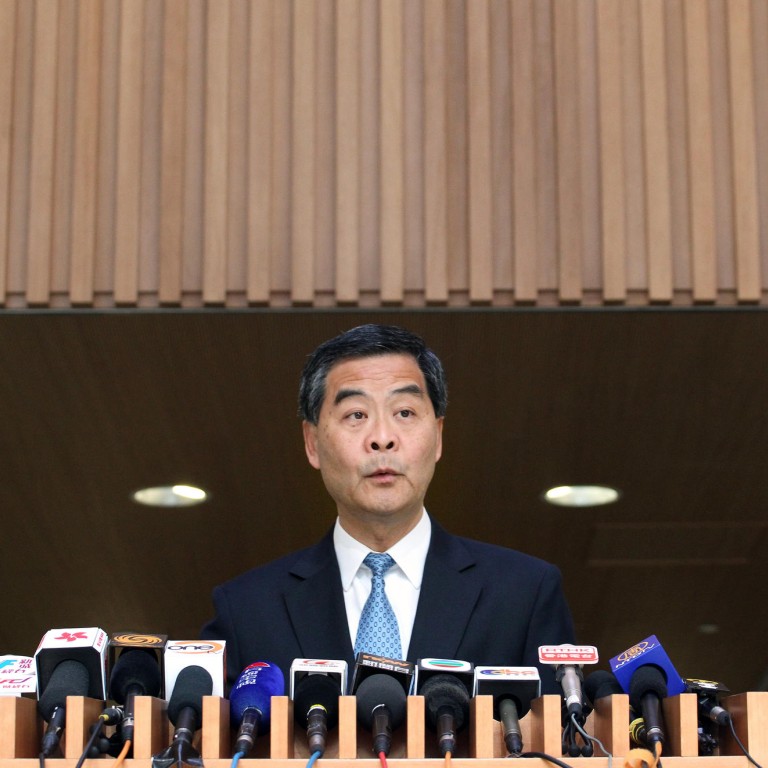
HKTV's lack of parent to back up finances key factor, government says
Chief Executive Leung Chun-ying is expected to explain today why Exco decided not to award a free-to-air TV licence to Ricky Wong's firm
Lack of financial support from a parent company was a major reason for the rejection of Hong Kong Television Network's application for a free-to-air broadcast licence.
That, at least, is the message the government is pushing in its last-minute lobbying effort to persuade its Legislative Council allies to vote against a proposal for a Legco investigation into the decision tomorrow.
This emerged as a government source said Chief Executive Leung Chun-ying would give a further explanation of the Executive Council's decision today. Other Exco members are also expected to do so over the next two days.
Legislators will vote tomorrow on whether to invoke the council's special powers to investigate last month's controversial decision, which sparked widespread protest.
PCCW's Hong Kong Television Entertainment Company and iCable's Fantastic Television, both subsidiaries of corporate giants, won ahead of Ricky Wong Wai-kay's independent HKTV.
With the government still four functional constituency votes short of the number needed to defeat the move initiated by Charles Mok to use Legco's special investigative powers, the administration is continuing its efforts to win over 12 wavering lawmakers.
One of the 12 said yesterday that the government's message was that Wong's bid was unsustainable as it lacked the backing of an established parent company.
"Ricky Wong was alone, while the other two players had the backup of their mother companies," said the lawmaker, who met the chief executive, his office director, Edward Yau Tang-wah, and commerce minister Greg So Kam-leung.
"The government said there would be cutthroat competition for advertising, resulting in the closure of more than one station," he said.
The lawmaker added that he was told that apart from consultancy reports, the three applicants were rated for their performance in multiple rounds of written defence that involved one-on-one challenges of each other's proposals.
"The applicants were asked to criticise their competitors' shortcomings and respond to challenges, and vice versa," the lawmaker said, adding that the process "revealed the real problems in their proposals".
Michael Tien Puk-sun, a directly elected lawmaker from the New People's Party, received a similar message at his meeting with Leung and So yesterday.
Tien quoted officials as saying that consultants assessed i-Cable and PCCW's subsidiaries and HKTV on four main criteria: finances, technological and production capability, programme strategy and investment.
"[Officials] believe that the most important principle is [whether] a television station operates in a financially sustainable manner, and for that principle, the consultancy report rated HKTV the lowest, so it also had the lowest overall score," Tien said. HKTV later wrote to the government, urging it to publicise the reports.
In a column published in the free tabloid yesterday, Wong dismissed any suggestion that his company lacked "financial stability".
"We have more than HK$2 billion in cash, we have no debt, we have been making a profit over the past five years. We are very stable financially," he wrote.
Successful applicant PCCW has a market capitalisation of HK$25.2 billion, more than 13 times HKTV's.
Peter Lam Yuk-wah, vice-president of the Televisioners Association, said it was unfair if the government compared HKTV to PCCW.
"A rich father doesn't necessarily have a rich son," Lam said. "You have to compare the applicants' business plans."


